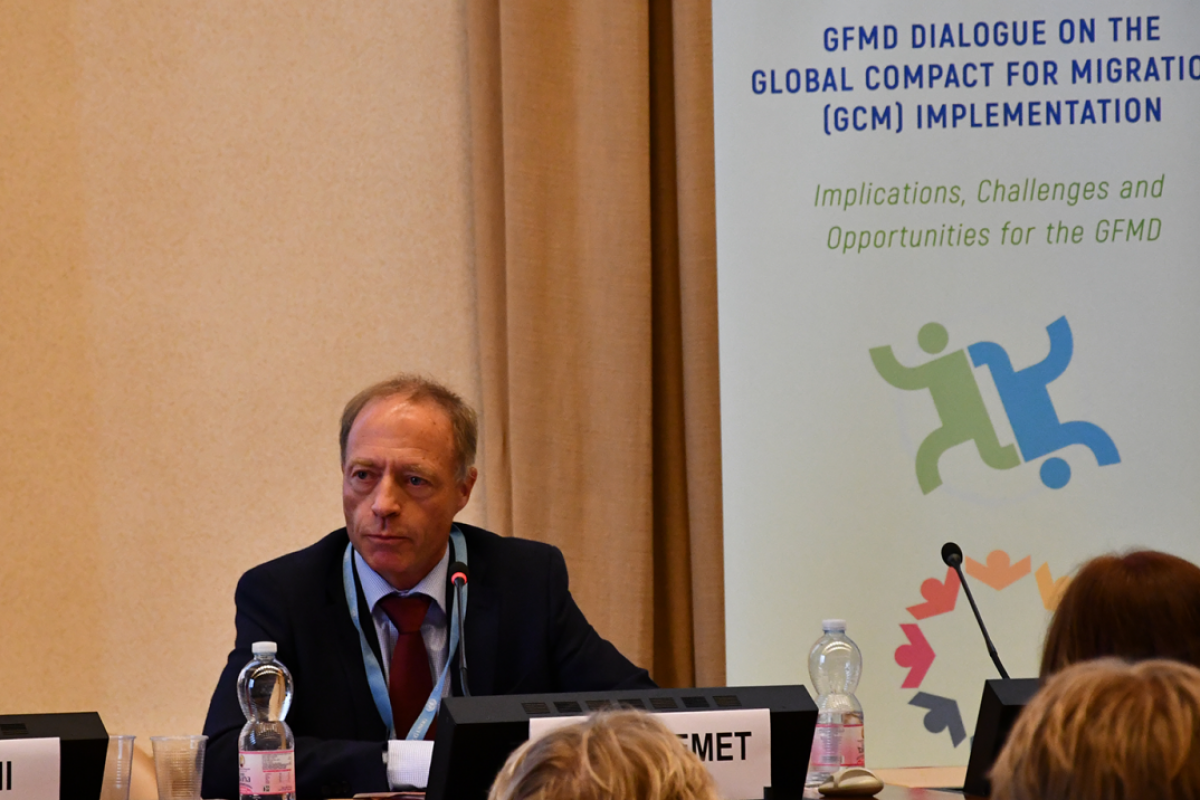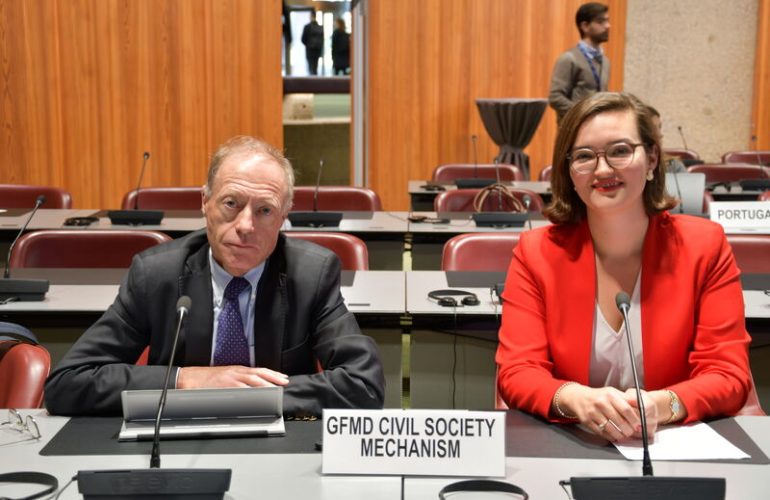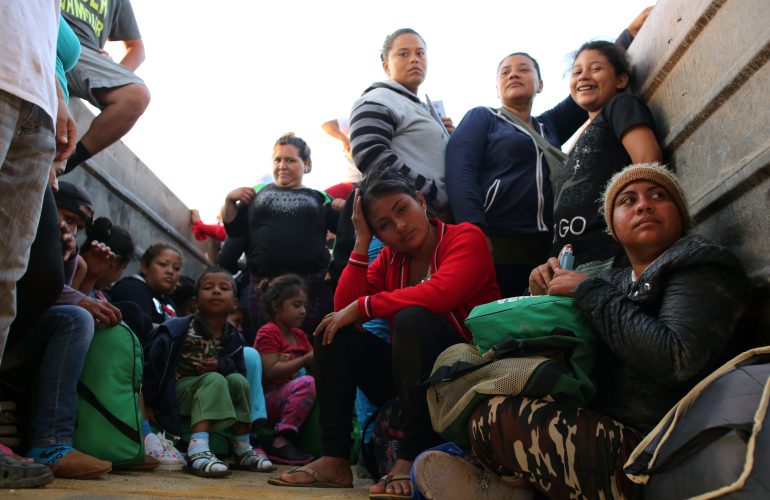Building on the Momentum of the Global Compact on Migration

The Global Compact on Migration should become the foundation of a concerted strategy among governments, civil society and the private sector, according to migration and development experts.
A new era of strategic collaboration between governments, civil society organizations and the private sector was at the forefront of discussions as these stakeholders met at the Friends of the Global Forum on Migration and Development (GFMD) gathering in Geneva at the beginning of September.
The focus of the meeting was the implementation of the recently finalized Global Compact on Safe, Orderly and Regular Migration (GCM), due to be adopted in Morocco in December.
“Civil society should not limit itself to asking governments to implement the GCM and then measuring progress. We have a duty to contribute to its implementation,” noted Stephane Jaquemet, Director of Policy at the International Catholic Migration Commission. Mr. Jaquemet delivered a statement agreed upon by the civil society organizations involved in the GFMD process.
“Ahead of us are opportunities,” the statement reads, “golden opportunities, for governments, both at the central and local levels, for civil society and for the private sector to move on and give concrete content to the GCM. But more importantly, to ensure that the well-being of migrants and those hosting them remain at the center of our interventions.”
The final draft of the Global Compact on Migration foresees a prominent role for the GFMD. This platform will allow governments to exchange experiences on the implementation of the Compact, share best practices, develop cooperation, promote innovative approaches and foster multi-stakeholder partnerships around policy issues.
During the meeting, Mr. Jaquemet and Ms. Akustina Morni from the International Organization of Employers both highlighted the importance of including the private sector in the dialogue on migration, as employment is crucial to the integration of migrants in host societies. Mr. Alex Zalami from the United Arab Emirates described collaboration between governments and civil society as a novel and positive change inaugurating a new era for migration policies.
Civil Society and the Upcoming GFMD
The statement also referred to the organization of the upcoming GFMD Civil Society days, which will be held in Marrakesh from 3 to 5 December. The event will bring together civil society leaders from all around the world to advance the agenda of protecting migrants’ rights and promoting human development.
The statement stressed the importance of bringing a diversity of actors to the Civil Society Days and to promote equal participation of contributors, regardless of gender, age, geographical location or thematic approach. Financial support should be provided to organizations from developing countries to ensure that they are able to engage in the dialogue.
Mr. Jaquemet also presented the 12 Civil Society Recommendations for the Future of the GFMD to the attendees. The document, which was elaborated by civil society actors participating in the GFMD, stresses the importance of engaging civil society actors in discussions and implementation of the GCM.
Since 2014, the GFMD Civil Society Days are coordinated by ICMC through the Migration and Development Civil Society Network (MADE). Participants formulate action plans and recommendations and submit them to governments for follow-up.
- Read the Civil Society Statement.
- Read the 12 Civil Society Recommendations for the Future of the GFMD.
- Sign on as an organization to the 12 Civil Society Recommendations for the future of the GFMD.


